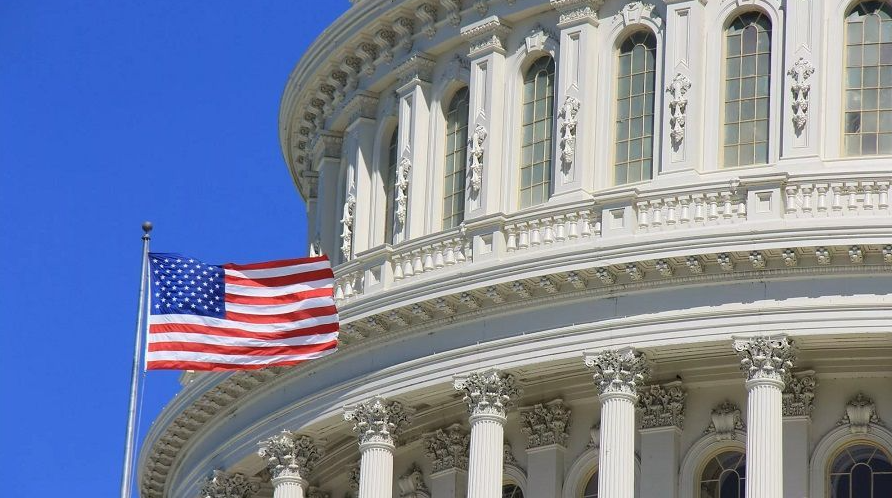US Congress Debates Stablecoin Regulation. USCongress is debating whether to regulate stablecoins. While lawmakers are expected to favor improved regulations of stablecoins, their agenda is quite busy these days, as they need to pass a $1 trillion infrastructure bill, an antipoverty package, and a climate package. The White House has involved top economic advisors in these discussions, and has largely relied on the recommendations of Biden’s working group, which includes Gensler and the Federal Reserve chairman Jerome Powell and FDIC chairman Jelena McWilliams.
Stablecoin TRUST Act of 2022
The Stablecoin TRUST Act of 2042 would require a federal regulatory agency to regulate and support stablecoins. The bill would require the OCC to charter national stablecoin issuers, establish a process for state banking institutions to issue stablecoins, and create a FInCEN innovation lab to help companies develop new stablecoins. The bill is being supported by industry groups including the Digital Chamber of Commerce, the Association for Digital Asset Markets, and the Blockchain Association. It would also include provisions related to interagency cooperation and regulatory oversight, and consumer protection.
The Stablecoin TRUST Act of 2042 will make it easier for banks and other institutions to issue stablecoins, which could ultimately lead to higher interest rates and more stablecoin adoption. The bill will also expand the types of organizations that can issue stablecoins, and it will require issuers to be registered under federal and state money transmitter regimes.
The Stablecoin TRUST Act of 2042 is expected to make payments safe and reliable. It would require stablecoin issuers to maintain a reserve of assets with a market value equal to 100% of the stablecoin’s value. In addition, it would require stablecoin issuers to use a national limited payment stablecoin issuer license.
The Stablecoin TRUST Act of 2042 was introduced by Senator Pat Toomey, the ranking member of the Senate Banking, Housing, and Urban Affairs Committee. It has since been released as a discussion draft, so it is not yet final legislation. It is meant to collect public feedback and may not become a final legislation. Toomey’s term ends at the end of the year, and he has said he will not seek re-election. As a result, he has approximately eight months to chart a course of action for the bill.
The Stablecoin TRUST Act defines payment stablecoins. To qualify as a payment stablecoin, it must be a digital asset that maintains a stable value relative to fiat currency, is issued by a central entity, does not pay interest, and is widely used as a medium of exchange. It also makes stablecoins exempt from SEC regulations because they are not securities. As a result, many private stablecoins currently traded on the market are not subject to the act’s requirements. Some examples of these include algorithmic stablecoins, DAO stablecoins, and commodity-linked stablecoins.
Investor protection
Federal and state regulators are working to develop appropriate crypto-asset regulations. This will help reduce the risk of fraud and provide investors with better protection. This is particularly critical when it comes to digital assets such as cryptocurrencies, which cut across the boundaries of traditional financial regulation. Without adequate regulation, these assets will remain subject to fraudulent practices and may even be a target for cyber attacks.
The lack of regulation has left an open door for widespread fraud, market manipulation, and scams to flourish in this industry. As a result, some public companies are changing their business models in order to attract more capital. In order to protect investors, regulators must ensure that the industry follows all applicable regulations. While the crypto market will remain a risky investment, investor protection can help make the sector safer for consumers.
Regulators should establish comprehensive international standards to regulate these assets. They should also create an enabling environment for crypto assets. This should be a priority for the Financial Stability Board. The aim of such regulations is to provide a coordinated, comprehensive, and harmonized approach to managing risk and market conduct. The regulations should also minimize the risk of regulatory arbitrage.
Regulating the crypto market is a step in the right direction, as the new regulations will help create more stability and predictability. However, crypto is still a high-risk investment, and experts recommend that most investors limit their holdings to less than 5% of their overall portfolios. In addition, financial experts advise that investors should not invest in crypto at the expense of saving for emergencies or paying off high-interest debt.
Regulating digital assets under securities laws will protect investors from abuse and fraud. Regulation would also ensure that the SEC exercises its authority over these assets and the market infrastructure associated with them, to the extent allowed by law.
Market integrity
To ensure that cryptoassets are traded in an open, fair, and transparent manner, the digital asset industry has created the Crypto Market Integrity Coalition. This group is made up of seventeen major crypto exchanges, firms, and industry associations. It aims to develop training programs and encourage research and dialogue with regulators.
The goal of the group is to promote market integrity and protect the public from fraudulent and unethical activity in the crypto industry. Among its members are BitMEX and Coinbase. The members of the group have pledged to protect their users from market manipulation. The group is led by industry leaders and has the goal of ensuring that the crypto industry operates in a fair manner.
The association has established committees to address regulatory concerns and ensure that the industry is operating in a transparent manner. The committees will address issues ranging from developing appropriate insurances for exchanges to interpreting tax code law as it relates to cryptocurrency trading. Ultimately, these committees will be tasked with developing the best practices and standards for the industry.
Cryptoassets are subject to anti-money laundering (AML) regulations. Some leading jurisdictions have begun monitoring platforms to detect fraudulent activities and ensure that they are not engaging in market manipulation. In addition, the E.U. is drafting Markets in Crypto Assets (MiCA) regulations, and countries such as Abu Dhabi, Dubai, Hong Kong, and the Bahamas are already requiring market surveillance to ensure that cryptoassets are safe from abuse.
Illicit finance concerns
The United States has taken a lead role in establishing standards and regulations for digital assets. But if these standards are not implemented properly, the risks associated with illicit finance are very real. The executive order addresses these risks and calls for increased international cooperation. It also highlights key strategies to fight illicit finance and protect consumers from securities fraud. These strategies include promoting a strong rule of law and democratic values, ensuring revocability of illicit transactions, and improving interoperability between digital platforms and legacy architecture.
In the United States, the government has extended many existing financial regulations to the crypto market. This includes Know Your Customer policies and anti-money laundering procedures. However, these laws have done little to deter the use of illegal exchanges by individuals. This issue is a pressing concern for lawmakers in both the House and Senate.
Meanwhile, the Treasury Department has taken measures to restrict cryptocurrency trading. In September 2021, the department announced sanctions against the Russian-based Suex exchange. It said that 40 percent of the exchange’s transactions were linked to illicit activity. By blocking transactions with the exchange, it hoped to make it harder for online criminals to process transactions on the exchange.
In South Africa, the Financial Services Council is planning to adopt new regulations governing cryptos. These regulations will address the interplay between cryptos and traditional financial services and help maintain financial stability. Although virtual currencies are not considered legal tender in South Africa, they are taxed as intangible assets.
The cryptocurrency market has increased in volatility in recent years, and regulators are ready to impose more stringent compliance obligations for companies dealing with these assets. For example, crypto platforms have been asked to implement Know-Your-Customer (KYC) rules that ensure compliance with anti-money laundering rules. In the coming years, financial services companies should be ready to meet these additional requirements.
Congressional action
In response to the rise of stablecoins, several lawmakers are seeking to take action in Congress to regulate these cryptoassets. One proposal is to establish a National Limited Purpose Trust to oversee and regulate stablecoin issuers. The act would also require stablecoin issuers to comply with activity restrictions and limit affiliation with commercial entities. Moreover, it would establish a supervisory body with authority to implement and promote industry standards. Congress may also consider standards for custodial wallet providers. These would set limits on how they may affiliate with commercial entities and use users’ transaction data.
The legislation was introduced by Senator Pat Toomey, the ranking member of the U.S. Senate’s Banking Committee. The legislation would clarify that only insured depository institutions may issue stablecoins. Additionally, it would require stablecoin issuers to submit attestations from registered public accounting firms. Further, the legislation would establish a regulatory framework that would protect consumers by ensuring that these stablecoins do not violate federal securities laws. The legislation also rejects the Securities and Exchange Commission’s approach to regulation of these cryptoassets through enforcement actions.
The New York State Department of Financial Services recently issued guidance on stablecoins. Meanwhile, the U.S. Senate is also considering a bill. Furthermore, recent events in the market may have accelerated the move toward regulation of stablecoin issuers. Traditional banks may also be stepping up their efforts to play an important role in regulating stablecoins.
While the administration continues to explore the issue of regulation, the Administration is committed to supporting digital assets and cryptographic technology. Its goal is to ensure that these assets are well-regulated and promote economic development. This includes strengthening the United States financial system and improving financial inclusion.



